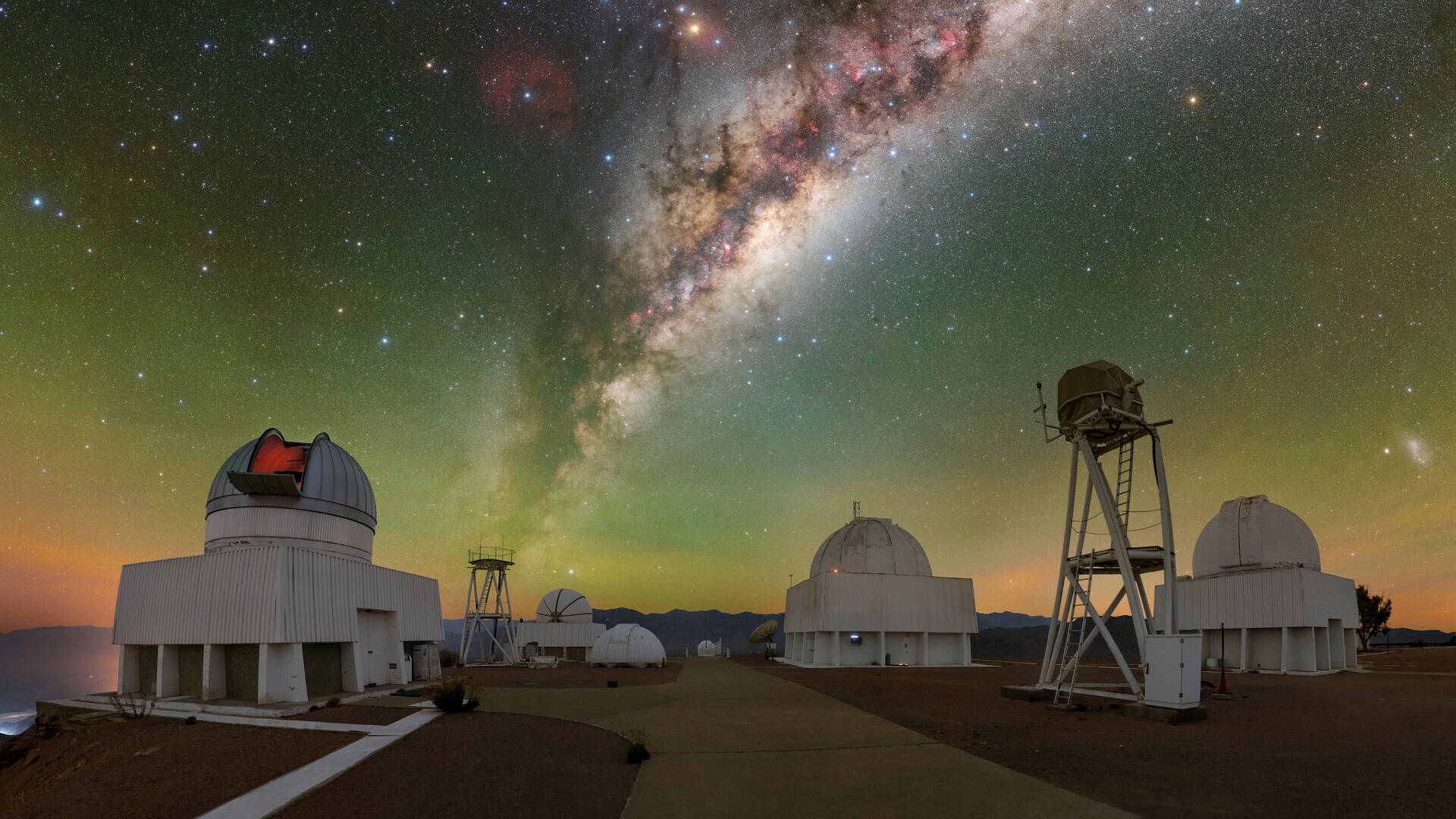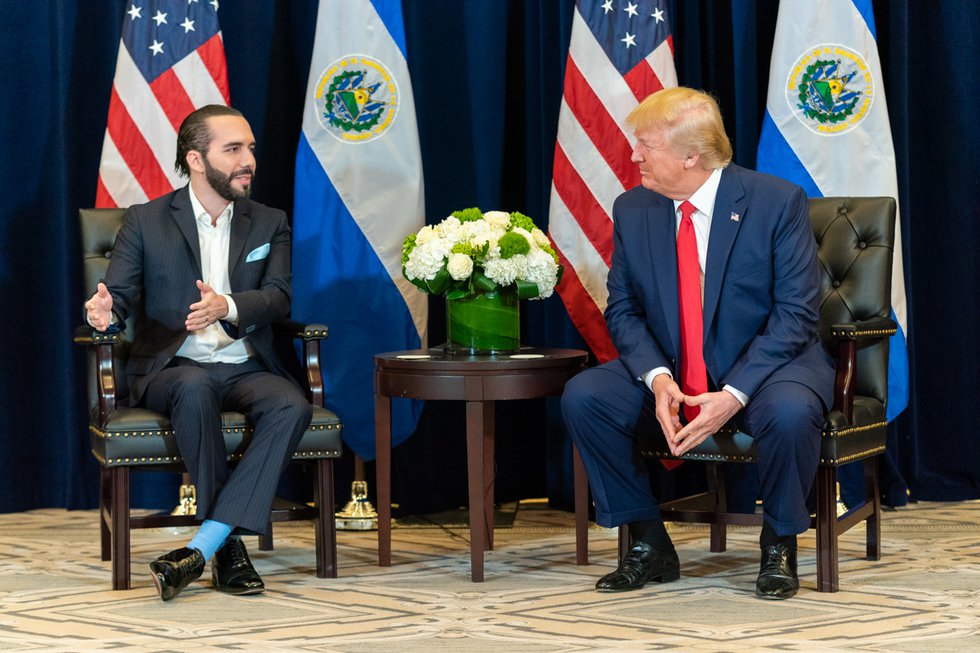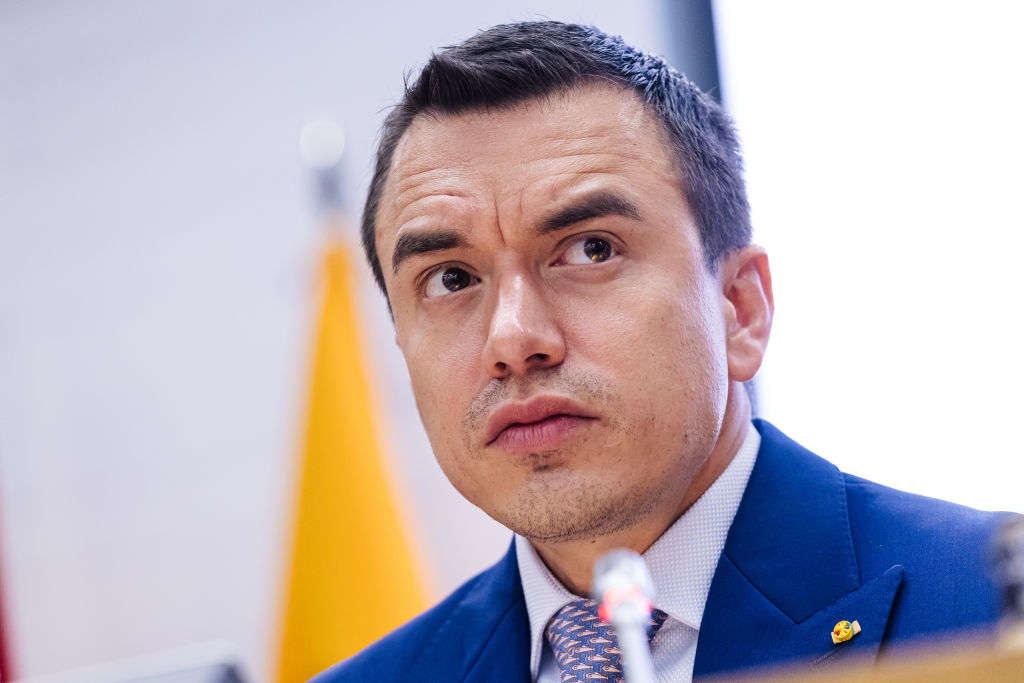Judi Lynn
Judi Lynn's JournalPsychologist becomes first person in Peru to die by euthanasia after fighting in court for years
BY FRANKLIN BRICEÑO
Updated 1:30 AM CDT, April 23, 2024
LIMA, Peru (AP) — A Peruvian psychologist who had an incurable disease that weakened her muscles and left her bedridden for several years died by euthanasia, her lawyer said Monday, becoming the first person in the country to obtain the right to die with medical assistance.
Ana Estrada fought for years in Peruvian courts for the right to die with dignity, and became a celebrity in the conservative country where euthanasia and assisted suicide are illegal.
In 2022, Estrada was granted an exception by the nation’s Supreme Court, which upheld a ruling by a lower court that gave Estrada the right to decide when to end her life, and said that those who helped her would not be punished. Estrada became the first person to obtain the right to die with medical assistance in Peru.
“Ana’s struggle for her right to die with dignity has helped to educate thousands of Peruvians about this right and the importance of defending it,” her lawyer, Josefina Miró Quesada, said in a statement. “Her struggle transcended our nation’s borders.”
More:
https://apnews.com/article/peru-euthanasia-psychologist-e5e8ccfd24cf9650b425dee7def99a2e
Protecting the Darkness in Chile's Atacama Desert

Light pollution is threatening the future of astronomy. Can a new nationwide lighting standard make a difference?
Top: A view of the Milky Way from NSF’s NOIRLab Cerro Tololo Inter-American Observatory, located at the edge of Chile’s Atacama Desert. Visual: CTIO/NOIRLab/NSF/AURA/T. Slovinský
BY ALEXA ROBLES-GIL
04.22.2024
GROWING UP in Chile’s Atacama Desert, Paulina Villalobos thought the Milky Way’s presence in the pristine starry skies was a given. Her father, an amateur astronomer, would wake her when a comet crossed the night sky. But Villalobos later moved to Santiago, the capital, to study architecture. There, the stars disappeared amid a haze of city lights. Just like people who come from the coast miss the ocean, she said, “I missed the sky.”
In late March, the Five-Hundred-Meter Aperture Spherical Radio Telescope (FAST) became open to proposals from astronomers outside of China for the first time.
In China, Heavenly Views Amid Earthly Tensions
The extraordinary darkness that sheaths the Atacama, which stretches for hundreds of miles in Chile’s north, has made it a haven for astronomers searching for planets and stars shimmering in the night sky. With its high altitude and clear skies, the region is repeatedly chosen as a site for observatories. According to some estimates, by 2030, Chile will be home to around 70 percent of the world’s astronomical infrastructure.
Yet even here, skyglow from hundreds of miles away can overwhelm the faint light emanating from astronomical objects.Now, a new regulation to darken the night skies.
In October, the Chilean government announced a new National Lighting Standard that will become effective later this year. The updated standards expand restrictions on light luminosity, color, and the hours they can be turned on to protect three major concerns: astronomy, biodiversity, and human health.
According to some estimates, by 2030, Chile will be home to around 70 percent of the world’s astronomical infrastructure. For astronomers, the stakes can feel high. While the Atacama offers a window to answer fundamental questions about the origin of life, that window is at risk of closing in the next 50 years due to increasing light pollution, said Chilean astronomer Guillermo Blanc. Worldwide, the sky is estimated to get brighter by 10 percent on average each year.
The new rule on light pollution in Chile was informed, in part, by a technical advisory committee, which included astronomers and other scientists — Villalobos, who is now an architect and lighting designer, among them. The new regulation, she said, offers “the possibility of recovering the sky.”
SINCE THE 1960S, the Atacama Desert has been an important hub for international astronomy. Today, the region, which boasts more than 300 clear nights per year, hosts some of the world’s most significant observatories, including the internationally funded Atacama Large Millimeter/submillimeter Array and the European Southern Observatory, the latter of which is currently developing the Extremely Large Telescope, set to open in 2028.
NOIRLab, a United States government-funded program, also operates two facilities in the Atacama. The National Science Foundation has invested more than $500 million to build a third facility, the Vera C. Rubin Observatory, which is expected to see first light later in 2025. Yet it too is threatened by light pollution, said Blanc, who works at the Las Campanas Observatory.
More:
https://undark.org/2024/04/22/darkness-in-chile-atacama-desert/




Please click the link below, and consider clicking any of the amazing thumbnails of the incredible telescopes in Chile's Atacama Desert (the driest place on earth) to get bigger views and information on the telescopes already in place, being used by astronomers all over the planet, and the one currently under construction which will be the world's largest optical telescope!
https://tinyurl.com/mrxdcty5
After 25 years of selling tamales in Chicago, an undocumented immigrant mother returns to Mexico without her family
After 25 years of selling tamales in Chicago, an undocumented immigrant mother returns to Mexico without her family

Claudia Perez walks through the municipal pantheon of Coacoatzintla, Veracruz, on Feb. 21, 2024. (Victoria Razo/for the Chicago Tribune)
Author
By LAURA RODRIGUEZ PRESA | larodriguez@chicagotribune.com | Chicago Tribune
PUBLISHED: April 20, 2024 at 10:04 a.m. | UPDATED: April 20, 2024 at 10:27 a.m.
Claudia Perez’s children could count on one hand the number of times they had seen their father cry.
The day their mother left was one of them.
Perez had worked her whole life for a dream that did not come true: Save enough money to take her family back to Mexico and live together in the town where they were all born.
Instead, on a cold February day, she stepped onto a bus in Brighton Park and said goodbye. The day had come to make the difficult choice between her loved ones in Mexico and her family in Chicago.
“Don’t leave my love. No te vayas viejita,” her husband yelled as she waved goodbye from inside the bus.
Battling health problems and a ticking clock, Perez, 63, chose to leave the life she’d built for herself and her family over the past 25 years. Though she was a successful street vendor in Little Village, she was in the country without legal permission. And she yearned to return to Mexico to hug her aging siblings, visit her parents’ graves and see the houses she’d built for her family using the money she’d earned selling tamales in Chicago.
More:
https://www.presstelegram.com/2024/04/20/after-25-years-of-selling-tamales-in-chicago-a-mother-in-us-illegally-returns-to-mexico-without-her-family/
Debunking the Myth of an Immigrant 'Invasion'
Understanding the root causes of migration is crucial to fighting back against the fear-mongering.
BY IVAN ESPINOZA-MADRIGAL APRIL 19, 2024 7:00 AM

President Donald J. Trump and El Salvador President Nayib Bukele meet during the United Nations General Assembly in New York City, September 2019.
If you care about fair elections, you need to understand what’s happening in Central America. Developments in El Salvador—along with the root causes of migration—are crucial to U.S. politics as immigration issues take center stage this election season. More than three decades after the Salvadoran civil war, it’s time to look at conditions on the ground.
Under El Salvador’s President Nayib Bukele, the country has moved away from a multi-party political system into one that concentrates power in the executive office. Bukele has used tactics such as occupying Congress and controlling social media to force his autocratic policies through. Nevertheless, Bukele’s approval ratings are impressive.
Bukele’s overwhelming popularity compels us to question features we typically assume are fundamental to democracy. For at least some voters, it’s not off the table to dispense with traditional checks and balances, the separation of powers, due process protections, and civil rights. This laissez-faire attitude towards democracy raises the question: Can democracy die democratically?
In the digital age, real challenges exist to maintaining public trust and confidence in democracy, including polarization, tension around the integrity of political systems, and waning faith in elections. This disappointment and exhaustion with politics help explain Bukele’s ascent to power. In the United States, we’re not immune: 57 percent of Republicans believe President Joe Biden wasn’t legitimately elected.
Economic hardships also affect political trends. American aid and international technical advice have failed to lift Salvadorans out of poverty and inequality. The country’s economy rests on a precarious scaffolding: Residents are extremely dependent on remittances from abroad.
More:
https://progressive.org/op-eds/debunking-the-myth-of-an-immigrant-invasion-espinozamadrigal-20240418/
Brazil's President Lula creates two new Indigenous territories, bringing total to 10
It's a contrast to his predecessor, Jair Bolsonaro, who encouraged development of the Amazon — legal and illegal — and didn't add areas designated as Indigenous lands.
Brazil's President Luiz Inacio Lula da Silva and Minister of Indigenous Peoples Sonia Guajajara arrive Thursday at the closing ceremony of the 1st Ordinary Meeting of the National Council for Indigenous Policy in Brasilia.Eraldo Peres / AP
April 19, 2024, 8:40 AM CDT / Source: The Associated Press
By The Associated Press
SAO PAULO — President Luiz Inácio Lula da Silva on Thursday announced the creation of two new Indigenous territories for Brazil, bringing the total number of new reserves during this term to 10.
The Cacique Fontoura reserve will be in Mato Grosso state and the Aldeia Velha territory will be in Bahia state. They will cover a combined total area of almost 132 square miles (342 square kilometers).
Speaking at a ceremony in Brasilia, Lula’s said Indigenous peoples should be patient as he seeks to fulfill his pledge of creating 14 new territories.
Lula’s predecessor, Jair Bolsonaro, had encouraged widespread development of the Amazon — both legal and illegal — and made good on his pledge to not demarcate a single centimeter of additional Indigenous land.
Lula took office in 2023 pledging to change that, but Indigenous rights activists hoped he would move faster. Last year, he demarcated six territories in April and two more in September.
More:
https://www.nbcnews.com/news/latino/brazil-president-lula-creates-two-new-indigenous-territories-rcna148540
PERU'S 'ANTI-FOREST LAW' REWARDS CRIME AND SCREWS THE PLANET

People protest against modifications to the forestry law that were rushed through Congress in 15 minutes, at the dead of night, at end of last year. Photo: Fotoholica Press Agency
19 April 2024
The law boosts deforestation and endangers land defenders, but resistance is growing writes Vanessa Baird.
While Brazil and Colombia are winning plaudits for reducing their rates of deforestation, Peru seems to be setting itself in the opposite direction.
The country has the second largest portion of the Amazon, after Brazil, but has lost more than 2.7 million hectares of forest (about the size of Haiti) over the past two decades, according to official figures.
New government data published this month shows that in 2022 Peru’s annual rate of deforestation rose by six per cent, with 146,575 hectares lost. And that situation is about to get worse, thanks to changes to its Forest and Wildlife law, rushed through Congress in 15 minutes, at the dead of night, at end of last year.
The modifications included in the new Law 31973 pardon all historical illegal deforestation on areas cleared for agriculture prior to January 2024, dismantle future legal constraints and effectively open up the Peruvian Amazon to more deforestation for agriculture.
More:
https://newint.org/forests/2024/perus-anti-forest-law-rewards-crime-and-screws-planet
Dead penguins turn up in Mar del Plata
Friday, April 19th 2024 - 21:48 UTC
At least 40 dead penguins were found on the Camet beaches in the northern part of the beach resort and fishing industry hub of Mar del Plata. Experts say that despite its shocking effect on residents these events have been occurring every year as a result of climate change and the ensuing lack of food. The first such appearances date back to “between 2000 and 2005,” it was explained.
Fundación Fauna Argentina's Juan Antonio Lorenzani claimed that this “phenomenon” has been occurring for at least 15 years. “These birds go to the beach sick or with serious malnutrition,” he also explained as he guessed that food shortages were due to climate change or overfishing. Or both. He also said it was likely that they were rushed into the sea at a very young age since all the specimens were not full adults yet.
“These episodes could continue for one or two months,” Lorenzani also foresaw. In any case, “it is not a rarity.” In fact, “they are becoming more and more frequent” as penguins undertake their yearly migration to Brazilian shores.
In addition to the appearances in Mar del Plata, other lifeless penguins were found in neighboring Mar Chiquita and Miramar, also along the South Atlantic coast of the Argentine province of Buenos Aires.
Given the “very skinny” state of the dead penguins, experts agree on the need for further research by specialists, most of whom are based in the province of Chubut, further south down Argentina's Patagonia.
More:
https://en.mercopress.com/2024/04/19/dead-penguins-turn-up-in-mar-del-plata
Church backs elderly victims of retired Guatemalan general
Manuel Benedicto Lucas García, considered 'one of the bloodiest generals in the history of Latin America,' is on trial for genocide

Manuel Benedicto Lucas García, former head of the Guatemalan army. (Photo: California State University Northridge. University Library)
A retired Guatemalan military commander – considered "one of the bloodiest generals in the history of Latin America" by survivors of the repression he oversaw -- has gone on trial for genocide, offering a possible last opportunity for justice for aging victims of targeted attacks on Indigenous villages during the country's armed conflict.
Manuel Benedicto Lucas García, former head of the Guatemalan army for eight months in the early 1980s, is standing trial on charges of genocide, crimes against humanity, forced disappearance and sexual violence. Lucas García's tenure as army chief coincided with the administration of his brother, President Fernando Romeo Lucas García.
Association for Justice and Reconciliation, an organization assisted by the Archdiocese of Guatemala City's human rights office since 2008, alleges the retired general ordered "more than 32 selective and generalized massacres," along with "the destruction of more than 23 entire villages" in the Maya Ixil region of western Guatemala, according to a pre-trial statement.
"From his position as Operational Commander of the Guatemalan Army, he identified the Mayan peoples of the country … as enemies of the State," the statement continued.
The massacres claimed the lives of at least 1,771 people, the organization said, including "children, the elderly, men, women, even pregnant women." Soldiers also burned homes and crops, while carrying out persecutions, forced displacements and bombings, "as well as subjecting the population to conditions of hunger and disease that caused the death of hundreds more people, in addition to serious acts of sexual violence against women and girls," the organization said.
More:
https://www.ucanews.com/news/church-backs-elderly-victims-of-retired-guatemalan-general/104860
Walk Like A Mayan: Mexico's Most Incredible Pyramids
Story by Peter Moore • 2w

Pyramids but not as you know them
©J.Enrique Molina/Alamy Stock Photo
The pyramids of Mexico take the basic principles of the traditional structure and take it to the next level. Some are stepped. Others are covered in niches. Most are topped by temples. One, in Chichen Itza, was built so that the shadow of a giant serpent appears to be slithering up its staircase during equinoxes.
Click through the gallery to see these incredible feats of ancient engineering and learn the often extraordinary stories behind them…
https://www.msn.com/en-us/travel/news/walk-like-a-mayan-mexico-s-most-incredible-pyramids/ss-BB1kEk7b
(Click each photograph to see more information. )
Ecuador President Noboa Shuts Down Nation on Electricity Crisis
3 MINUTE READ

The President of the Republic of Ecuador, Daniel Noboa, speaks during a Spain-Ecuador business meeting in Madrid, Spain, on 25 Jan., 2024 .Carlos Lujan—Europa Press/Getty Images
BY STEPHAN KUEFFNER / BLOOMBERGAPRIL 17, 2024 10:42 PM EDT
Ecuador’s President Daniel Noboa ordered businesses and government offices to shut down Thursday and Friday amid a crippling lack of electrical power ahead of a key national referendum scheduled for Sunday.
Noboa blamed the unprecedented measure on drought, but also sabotage, without offering evidence. The energy crisis comes on the heels of a security crisis and a fiscal crisis that’s sent it seeking help from the International Monetary Fund.
“We’ve been hammered and hammered and hammered non-stop this week, they’ve tried to screw us with sabotage in the electric sector” to undermine support for his referendum, said Noboa, 36, in Atacames, a beach town hit hard by the surge in crime that’s made Ecuador one of Latin America’s most violent countries.
The market-friendly heir of a banana export fortune is asking voters in Sunday’s referendum to approve stronger use of the military as well as the extradition of Ecuadorian citizens to fight crime and to overturn constitutional bans on temporary work and international arbitration.
More:
https://time.com/6968360/ecuador-noboa-shutdown-electricity-crisis/


Daniel Noboa, President, and Álvaro Noboa, richest man in Ecuador and 5-time loser in Presidential elections.

Álvaro Noboa

Wikipedia, regarding father's human rights problems:
- snip -
Labour practices
Usleap once affirmed Noboa has opposed campaigns for workers' rights within his own companies, and Noboa Group workers have been illegally dismissed for joining trade unions.[19][20] In one 2002 incident striking workers at a Noboa subsidiary were attacked and–according to a Human Rights Watch report–several were shot by organized assailants.[21][22]
In 2002 the New York Times reported on working conditions in Álvaro Noboa's banana plantations in Ecuador. The article specifically mentioned the 3,000-acre (12 km2) plantation known as Los Álamos that employed about 1,300 people.[23] The workers of Los Álamos unionized in March 2002. Noboa's company responded by firing more than 120 of them. The article read: "When the workers occupied part of the hacienda, guards armed with shotguns, some wearing hoods, arrived at 2 a.m. on May 16, according to workers, and fired on some who had refused to move from the entrance gate, wounding two."
Noboa's Company, on the other hand, claims that the conflict was illegally initiated since the number of workers' with which the special committees were assembled never reached the number required by law, that is, a majority. They tried to fool authorities by having participants who were not workers. Both the workers' committee and the strike declaration were illegal.
It was said to the public and press that workers involved in this conflict were guilty of outrageous conduct at the farm, which motivated accusations brought forth before the authorities whereby the police had to intervene in order to safeguard company assets. The company told that conflict arose causing substantial losses due to unlawful stoppage of agricultural activity.[24]
Child labor
Noboa Group was also criticized in a HRW investigation into child labor practices in the banana industry.[25] In April 2002 Human Rights Watch released a report that "found that Ecuadorian children as young as eight work on banana plantations in hazardous conditions, while adult workers fear firing if they try to exercise their right to organize."[26]
More:
https://en.wikipedia.org/wiki/%C3%81lvaro_Noboa
Profile Information
Member since: 2002Number of posts: 160,503